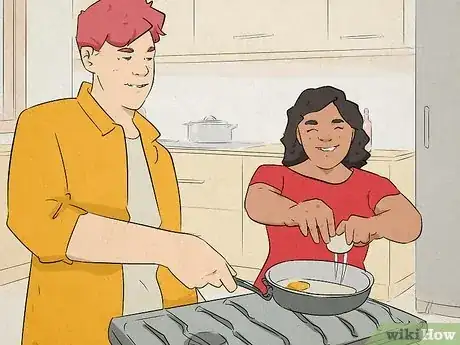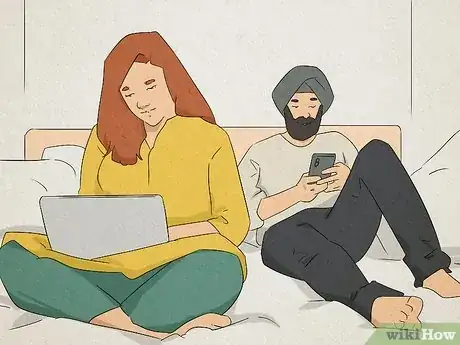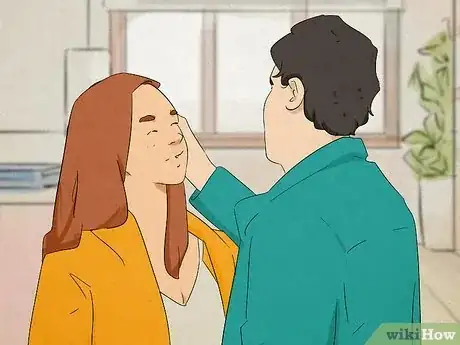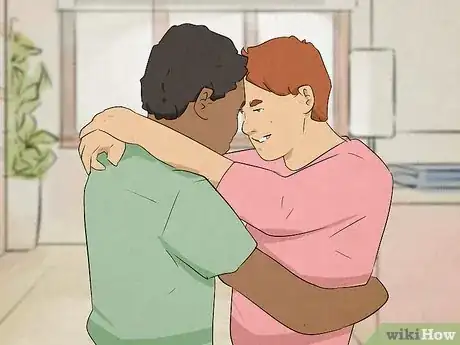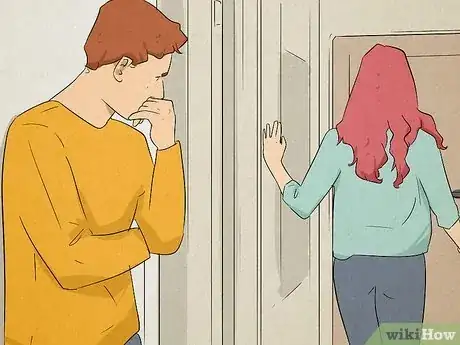This article was written by Asa Don Brown, PhD, DNCCM, FAAETS and by wikiHow staff writer, Eric McClure. Dr. Asa Don Brown is a Clinical Psychologist with over 25 years of experience. He specializes in working with families, children, and couples, treating a variety of psychological disorders, trauma, and abuse. Dr. Brown has specialized in negotiation and profiling. He is also a prolific author having published three books and numerous articles in magazines, journals, and popular publications. Dr. Brown earned a BS in Theology and Religion with a minor in Marketing and an MS in Counseling with a specialization in Marriage and Family from The University of Great Falls. Furthermore, he received a PhD in Psychology with a specialization in Clinical Psychology from Capella University. He is also a candidate for a Masters of Liberal Arts through Harvard University. Dr. Brown is a Fellow of the American Academy of Experts in Traumatic Stress and a Diplomate for the National Center for Crisis Management and continues to serve a number of psychological and scientific boards.
There are 8 references cited in this article, which can be found at the bottom of the page.
This article has been viewed 7,459 times.
Have you started dating someone and you’re wondering where that spark is? Interested in learning more about how the honeymoon phase works? The honeymoon phase refers to that special period at the beginning of a relationship where your partner can do no wrong and the world feels full of possibility. In this article, we’ll walk you through everything you need to know about the honeymoon phase—from who experiences it, to what that experience means. We’ll even cover what you need to know about what comes next!
This article is based on an interview with our clinical psychologist and published author, Asa Don Brown. Check out the full interview here.
Steps
Does every relationship have a honeymoon phase?
-
No, although the honeymoon phase is very common. Most relationships have a honeymoon phase, where each partner is so excited and enamored by the prospect of the new relationship that they ignore any flaws in one another. While this is common, it’s by no means a universal experience. There are tons of loving relationships out there where neither partner experienced a honeymoon phase.[1] X Expert Source

Clinical Psychologist Expert Interview. 3 February 2022.
Is it bad if there’s no a honeymoon phase?
-
1No, so long as you’re happy, it doesn’t matter. The honeymoon phase is something a lot of people experience in new relationships, but that doesn’t mean anything on its own. So long as you’re interested in your partner and the two of you are happy, there’s nothing wrong with the relationship.[2] X Expert Source

Clinical Psychologist Expert Interview. 3 February 2022.- Everybody experiences love differently, and every relationship is different. Do not worry if your new relationship doesn’t feel like other relationships you’ve had.
-
2Not having an intense honeymoon phase might be a good thing. There’s nothing wrong with the honeymoon phase on its own. However, there is some evidence that the more intense things are early on, the more likely a relationship is to fizzle out over time. If you and your partner kick things off with a more laid-back vibe, it might increase the odds that you two stick together over the long run.[3] X Trustworthy Source PubMed Central Journal archive from the U.S. National Institutes of Health Go to source
- This doesn’t mean that your relationship is in trouble if there is a honeymoon phase. Tons of successful relationships start on a hyper-passionate high note.
Why wouldn’t a relationship have a honeymoon phase?
-
1It could be that you already know your partner very well. It’s a little harder to be head-over-heels for somebody if you already know about all of their quirks and annoying habits. If you were friends with your new partner for a long time, it’s super reasonable that you wouldn’t have a honeymoon period.[4] X Research source
- It’s a lot easier to imagine that somebody is the best thing since sliced bread if you don’t know everything about them yet.
-
2You may be mature enough to be realistic about your partner. If you’ve loved and lost before, you may have the experience you need to avoid overromanticizing things. If you’re a little on the older side or you’ve been in a bunch of different relationships before, you may be less likely to assume the best about your new partner.[5] X Research source
- If you are a little more experienced and you’re looking to bring that spark back to your dating life, try to keep a super open mind. The less analytical you are about your new partner, the more likely you are to enjoy dating in the moment.
-
3It’s possible you did have a honeymoon phase and it just ended quickly. Everybody experiences new relationships differently, and there’s no universal length of time for a honeymoon phase. Whether it was a few days or a few weeks, it’s possible that you actually did experience a honeymoon phase and it simply ended already.[6] X Research source
- A honeymoon phase may go by faster if the two of you spend a ton of time together. It’s a lot easier to see someone’s flaws if you spend every single day with them.
How long does the honeymoon period last?
-
The honeymoon phase typically lasts a few months to 2 years. While everyone is different, the honeymoon phase usually ends before two years have passed. A lot of this probably depends on much space you give one another early on, and how likely you are to fantasize and romanticize new partners. In any case, the honeymoon phase can’t (and shouldn’t) go on forever.[7] X Research source
- While it’s certainly possible to bring the feelings from the honeymoon phase back, it’s not always a bad thing if the honeymoon period ends.
What happens after the honeymoon phase?
-
1You recognize your differences and come to accept them. Once the honeymoon phase ends, you’ll have an easier time identifying what makes you and partner different. You may notice things that annoy you, or figure out where your partner falls short when compared to previous partners. As you two move on in the relationship, you’ll start to accept all of these things and love your partner for who they are.[8] X Expert Source

Clinical Psychologist Expert Interview. 3 February 2022. -
2Your bond becomes deeper and more stable. The honeymoon phase is full of passion and novelty, but it’s also full of extreme mood swings and stress. As the freshness of the relationship starts to wear off, your relationship will become more equitable and calm. You two may begin to understand one another on a deeper level, and anticipate one another’s needs.[9] X Research source
- You may experience a shift in your romantic feelings as the honeymoon period ends. You may move from a more intense form of attraction to a warmer, cooler kind of appreciation.
-
3You begin to grow your relationship for the long term. If you and your partner are discussing the future, the honeymoon phase is probably over and you two are ready for what’s next. A deeper bond comes with a greater respect for the future of the relationship. The honeymoon phase is all about what’s happening right now. As that ends, the two of you will start building towards something bigger![10] X Expert Source

Clinical Psychologist Expert Interview. 3 February 2022.- You two may start to discuss moving in together, or talk about getting engaged.
-
4You may realize this isn’t going to work out and part ways. The end of the honeymoon phase is where you identify any red flags or dealbreakers you’ve been ignoring up to this point. This is why the end of the honeymoon phase is often a “make or break” moment for couples. If the honeymoon phase ends and you suddenly recognize that this isn’t Mr. or Ms. Right, there’s nothing wrong with breaking up.[11] X Research source
You Might Also Like

 Signs Your Ex Will Eventually Come Back
Signs Your Ex Will Eventually Come Back


 What Are the Bases in a Relationship? Defining the Baseball-Sex Metaphor
What Are the Bases in a Relationship? Defining the Baseball-Sex Metaphor
 The Top Emojis a Girl Will Use if She Likes You
The Top Emojis a Girl Will Use if She Likes You
 How to Tell if Your Girlfriend Is Horny: 12 Signs She's Turned On
How to Tell if Your Girlfriend Is Horny: 12 Signs She's Turned On
 What to Do When Your Girlfriend Is Mad at You (10+ Steps to Take)
What to Do When Your Girlfriend Is Mad at You (10+ Steps to Take)
 12+ Texts to Send Your Girlfriend After a Fight: Apologies & More
12+ Texts to Send Your Girlfriend After a Fight: Apologies & More
 How to Have Phone Sex with Your Girlfriend
How to Have Phone Sex with Your Girlfriend

 33 Sweet & Romantic Apology Messages for Your Love
33 Sweet & Romantic Apology Messages for Your Love
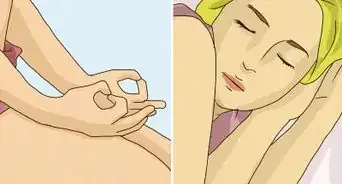 12 Ways to Break a Narcissist's Heart
12 Ways to Break a Narcissist's Heart

References
- ↑ Asa Don Brown, PhD, DNCCM, FAAETS. Clinical Psychologist. Expert Interview. 3 February 2022.
- ↑ Asa Don Brown, PhD, DNCCM, FAAETS. Clinical Psychologist. Expert Interview. 3 February 2022.
- ↑ https://pubmed.ncbi.nlm.nih.gov/24643282/
- ↑ https://www.independent.co.uk/life-style/love-sex/dating-friend-true-love-secret-tips-relationships-a7863251.html
- ↑ https://www.theguardian.com/lifeandstyle/2020/mar/09/hope-and-heart-sinks-what-it-is-really-like-to-date-online-as-a-woman-in-your-40s
- ↑ https://www.psychologytoday.com/us/blog/get-some-headspace/201307/mindfulness-and-the-phases-relationship
- ↑ https://www.abc.net.au/everyday/what-happens-when-your-relationship-loses-the-sexual-spark/10929576
- ↑ Asa Don Brown, PhD, DNCCM, FAAETS. Clinical Psychologist. Expert Interview. 3 February 2022.
- ↑ https://www.scientificamerican.com/article/what-physiological-changes-can-explain-honeymoon-phase-relationship/
- ↑ Asa Don Brown, PhD, DNCCM, FAAETS. Clinical Psychologist. Expert Interview. 3 February 2022.
- ↑ https://globalnews.ca/news/6009940/honeymoon-phase-over/
About This Article


